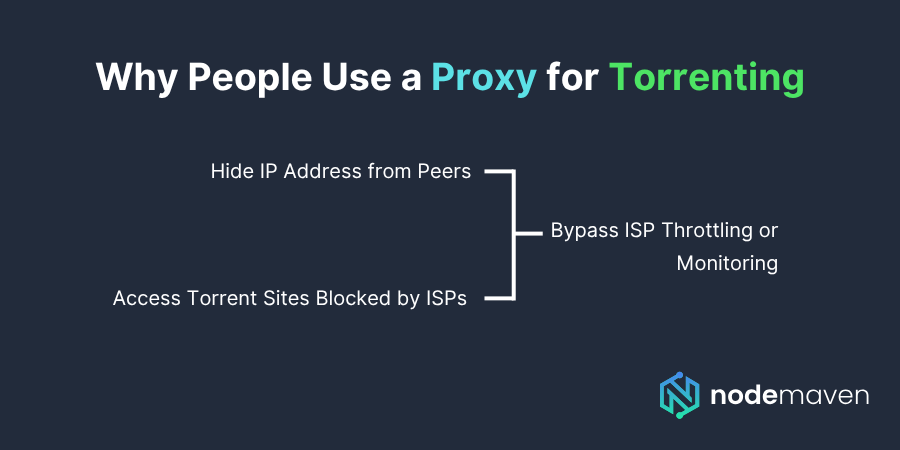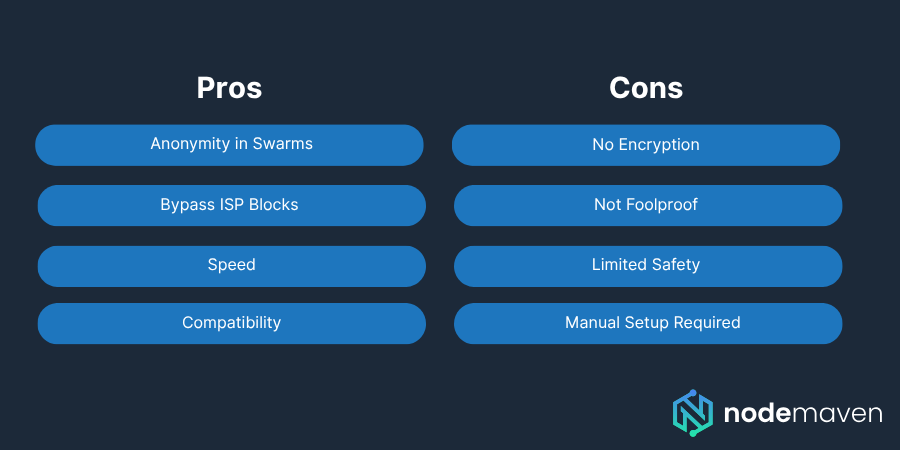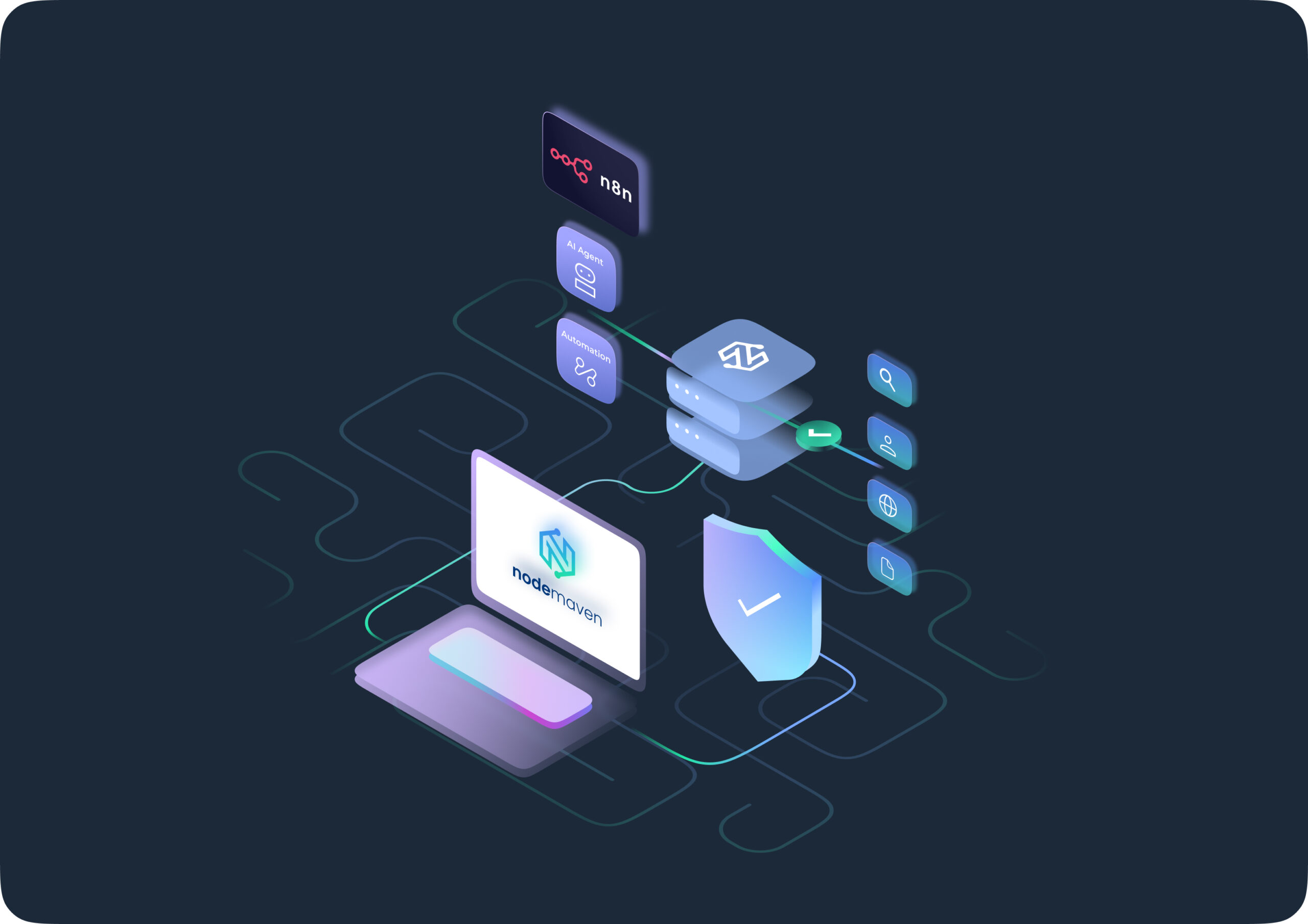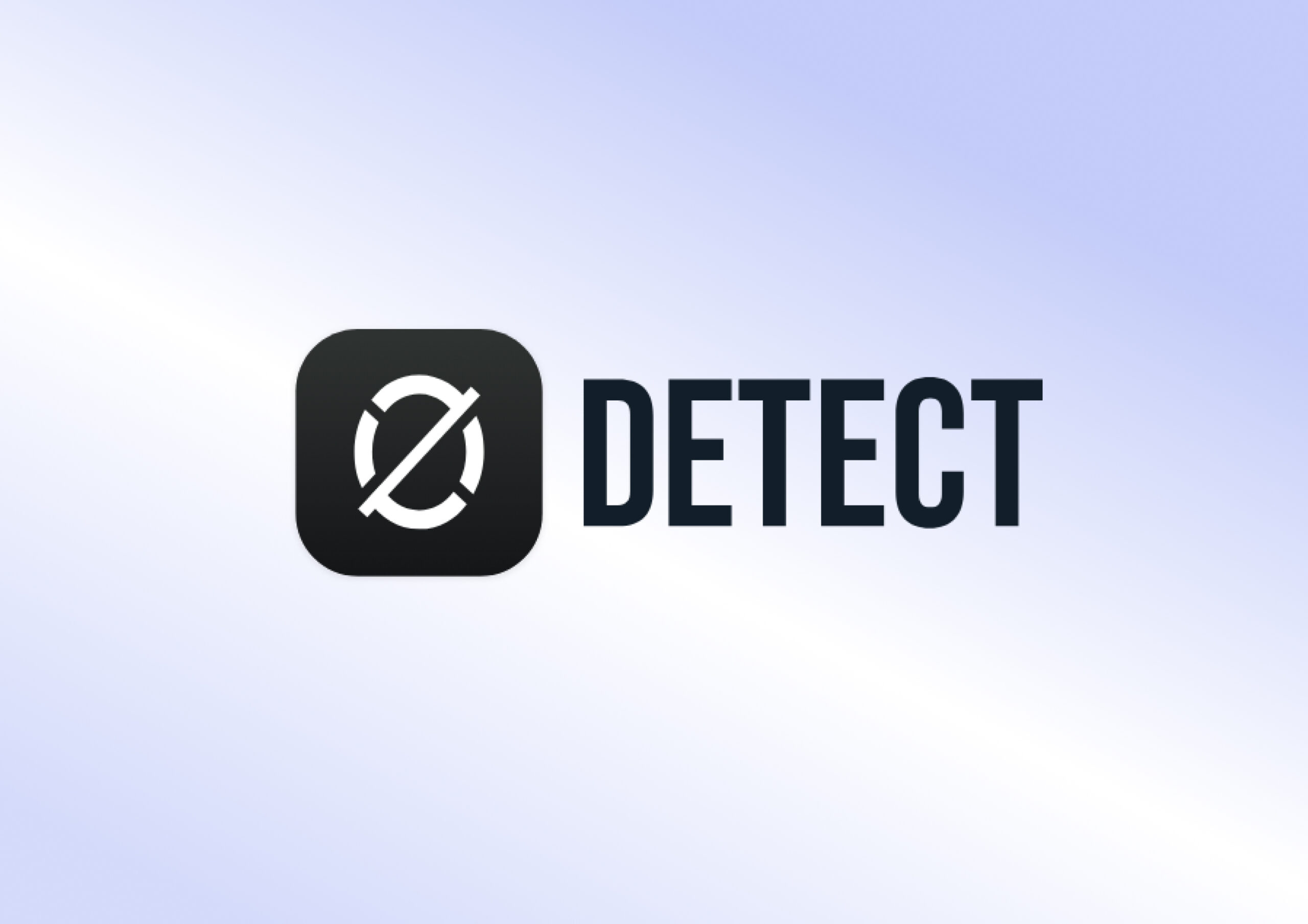Every time you start a torrent download, your IP address is exposed to the entire world. That’s the reality most people overlook.
Anyone in the torrent “swarm” can see your IP, including nosy internet providers, copyright monitoring bots, and even random strangers.
That’s why more torrent users are turning to proxies – to hide their IP, bypass throttling, or access blocked torrent sites. But does it actually work? And is it worth the effort?
Here’s everything you need to know about using proxies for torrenting – no fluff, no hype, just facts.
Reasons Why People Use Proxy for Torrenting
Before we jump into whether proxies are worth your time, let’s talk about why people even use them for torrenting in the first place. It’s not just about hiding your tracks, though that’s a big part of it.
Here are the three biggest reasons torrent fans swear by proxies:

Hide IP Address from Peers
When you download a torrent, you’re not just getting files—you’re connecting to a swarm of peers. Everyone in that swarm can see your IP address. Yes, everyone.
This means:
- Anyone can trace your general location.
- Copyright enforcement agencies can monitor torrent swarms for illegal downloads.
- Hackers could potentially target exposed IPs.
Using a proxy helps here by masking your real IP address and showing the proxy server’s IP instead. It’s like wearing a digital disguise while you torrent.
Bypass ISP Throttling or Monitoring
Many Internet Service Providers (ISPs) throttle or slow down torrent traffic. They do it to manage bandwidth usage or discourage peer-to-peer (P2P) file sharing altogether.
But here’s the kicker – most proxies reroute your torrent traffic, making it harder for your ISP to detect and throttle it.
While proxies don’t encrypt your data like VPNs do, they can still:
- Avoid some forms of throttling.
- Obscure the fact that you’re torrenting altogether.
- Keep you under the radar for those pesky “fair use” warnings.
Access Torrent Sites Blocked by ISPs
Some ISPs outright block popular torrent tracker sites – think The Pirate Bay, 1337x, and others.
If you can’t even get to the site to download the .torrent file or magnet link, proxies come to the rescue. They allow you to:
- Unblock torrent sites by masking your IP and browsing location.
- Access restricted or censored websites in seconds.
It’s a simple workaround, and for many users, this alone makes proxies a no-brainer.
Pros and Cons of Using a Proxy for Torrenting
Alright, so proxies sound great so far, right? But like everything else in tech, they have their trade-offs.
Here’s a brutally honest breakdown of the pros and cons of using a proxy for torrenting:
Pros:
- Anonymity in Swarms: Your IP stays hidden from other peers.
- Bypass ISP Blocks: Easily access restricted torrent sites.
- Speed: Proxies don’t encrypt your traffic, so you won’t face the speed drops common with VPNs.
- Compatibility: Most popular torrent clients (qBittorrent, uTorrent, Deluge) support proxies.
Cons:
- No Encryption: Your ISP can still potentially see your traffic, unlike with a VPN.
- Not Foolproof: Proxies only hide your IP in the torrent client – they won’t protect you on the browser or elsewhere unless set up fully.
- Limited Safety: Free proxies can be risky, potentially logging or selling your data.
- Manual Setup Required: It’s not as plug-and-play as some VPNs – you’ll need to configure your torrent app manually.

Best Proxy for Torrenting
When it comes to picking the right kind of proxy for torrenting, not all proxies are created equal. Let’s break down the most common types:
SOCKS5 Proxies (Most Common)
SOCKS5 is hands-down the most popular type of proxy for torrenting – and for good reason:
- No encryption = faster speeds.
- Works perfectly with most torrent clients.
- Supports UDP and TCP traffic for efficient P2P connections.
- Allows authentication for added security.
Many reputable proxy providers offer SOCKS5 specifically for torrenting. It’s widely supported by apps like:
- qBittorrent
- uTorrent
- Vuze
- Deluge
Best For: Speed, simplicity, and swarming anonymity.
HTTP/HTTPS Proxies
These are more common for web browsing, but can technically be used to access torrent sites blocked by ISPs.
However:
- They only work for web traffic (not torrent swarms).
- Not suitable for actual torrent file sharing or P2P connections.
- May expose you to security risks if used for downloading torrents.
Best For: Unblocking torrent sites, not for actual torrenting.
Bonus: VPNs with Proxy Capabilities
Some VPNs offer SOCKS5 proxy functionality on top of their usual encryption, giving you the flexibility of both tools.
However, while technically these are VPNs, their SOCKS5 features behave just like a traditional proxy, with no encryption but faster speeds and IP masking.
Best For: Users who want VPN-like security with proxy-level speed in torrenting.
How to Set Up a Proxy for Torrenting (Step-by-Step)
Ready to actually use a proxy for torrenting? Here’s the no-nonsense, step-by-step guide for setting it up in your torrent client:
Step 1: Get a SOCKS5 Proxy
- Pick a reliable SOCKS5 proxy provider (avoid free ones, they’re risky).
- Get the proxy’s server address, port, username, and password (if applicable).
Step 2: Open Your Torrent Client
Let’s use qBittorrent as an example here (this also works similarly in uTorrent or Deluge).
- Go to Tools → Options.
- Click on Connection.
Step 3: Enter Your Proxy Details
Under the Proxy Server section:
- Type: SOCKS5
- Hostname: Enter the proxy server address.
- Port: Enter the proxy port number.
- Username & Password: If your proxy requires authentication, fill these in.
Tip: Enable proxy for both peer connections and trackers for full protection.
Step 4: Configure Additional Settings (Optional but Recommended)
- Disable DHT (Distributed Hash Table).
- Disable Local Peer Discovery.
- Disable Peer Exchange.
These steps prevent IP leaks through alternate connection methods.
Step 5: Test Your Setup
Download a test torrent from an IP tracker site like:
- ipMagnet
- CheckMyTorrentIP
These tools show your torrent IP, confirm it’s the proxy IP, not your real one.
Pro Tip: If your torrent client has a “force proxy usage” option, enable it. This blocks connections that don’t go through the proxy.
Is Using a Proxy for Torrenting Legal?
Here’s where things get a bit tricky, but it’s important to clear this up.
Is it legal to use a proxy?
Yes. In most countries, using a proxy itself is completely legal. Proxies are simply tools for routing internet traffic, and they have plenty of legitimate uses, torrenting included.
Is torrenting legal?
That depends. Torrenting itself (as a technology) is legal, many open-source and public domain files are shared this way.
However:
Downloading copyrighted content without permission is illegal in most regions and could result in:
- ISP warnings
- Fines
- Legal action
Bottom Line: Using a proxy won’t magically make illegal downloads “safe.” You’re still responsible for your actions online. Always verify whether the content you’re downloading is legal in your jurisdiction.
Alternatives to Proxies for Torrenting
If proxies aren’t quite what you’re looking for, here are other tools torrent users often consider:
1. VPNs
Encrypt all your internet traffic—including torrenting—while hiding your IP from everyone (including your ISP).
- Slower than proxies due to encryption.
- Offers more complete privacy protection.
2. Seedboxes
Remote servers are specifically designed for torrenting. They download torrents on your behalf and let you access files via secure download links.
- Very private.
- Fast downloads.
- Monthly cost required.
3. Streaming Instead of Torrenting
Sometimes, you don’t need to download at all. Many sites now let you stream the same content legally or via P2P-based streaming platforms.
Conclusion: Is a Proxy Right for Your Torrenting Needs?
So, is using a proxy for torrenting actually worth it?
Here’s the quick recap:
- Proxies hide your IP from torrent swarms and unlock restricted sites.
- They’re faster than VPNs and ideal for casual, privacy-conscious users who mainly want to mask their identity during torrenting.
- They don’t encrypt your traffic, meaning your ISP can still potentially see you’re torrenting unless you take additional steps.
- Not all proxies are created equal – SOCKS5 proxies are by far the best for torrenting.
If you’re looking for basic IP masking and a speed-friendly setup without full encryption, proxies are definitely worth considering.
But if you need full-fledged protection from ISP monitoring or government surveillance? You might want to look into VPNs or seedboxes instead.
Your torrents, your call. Stay smart, stay safe!
Frequently Asked Questions (FAQs)
- Slow down torrenting speeds.
- Pose privacy risks if others are using the same proxy for sketchy purposes.
- Get blacklisted more easily on torrent trackers.
- Many of these sites inject ads or even malware.
- They’re often slow and unreliable.
- Some log your browsing activity.
- Misconfiguring proxy settings, which can break downloads.
- Forgetting to force proxy use, leading to accidental leaks.
- Enabling conflicting features like DHT or Local Peer Discovery, which can bypass your proxy.


